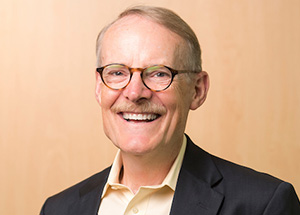The Power of Collaboration and a Broader Perspective
We are excited to announce that Dr. Francis Eberle has recently joined the Price Associates team. Francis spent more than 25 years as an executive for non-profits and start-ups, and has been a key figure in statewide education policy. Today he works with leaders and teams to improve skills, solve complex problems, conduct research, grow finanacial and programmatic resources, and engage partners to work together toward common goals.
Francis is the co-author of three books, as well as the author of several policy briefs and the standards readiness tool for state boards, among other publications. He speaks frequently on leadership, organizational development, education policy, and reforms in science and engineering education.
We sat down with Francis to talk about the power of cross-collaboration, and his work with companies that want to have a social impact.
What is your favorite thing about organizational consulting?
I really enjoy helping organizations that want to build relationships with others and work toward a common goal. Cross-organizational collaboration is becoming more commonplace in companies while more common in nonprofits. It is a significant leadership skill, and one that can sometimes be difficult to execute. But when different organizations align, they can have a much greater impact than they can acting alone.
I’ve seen this happen successfully throughout my career. I worked as the co-director of a $7 million program focused on increasing the numbers of math and science teachers graduating from universities in the state of Maine. We had great success collaborating with seven university campuses to roll out the initiative. My organization was the nonpartisan organizers and allocators, helping campus representatives work together and coordinate forces. We worked to build bridges, joining K-12 with the university sector.
The end result was an increase in the number of students graduating as math and science teachers by 250%.
Not only that, but the program inspired additional collaboration among university groups. We learned that the admissions teams had never talked to each other before because they had all been competing. Because of our program and the relationship facilitation, admissions departments at these universities actually began working on additional projects of their own. The faculty also started working together and started Future Teacher clubs on campus.
This is a process I have duplicated many times and used with my clients: the idea of bringing together different organizations and cultures with specific expertise in different areas to execute a common goal.
What drew you to leadership and business advising?
Throughout my career, I have seen first-hand how valuable it is for emerging and existing leaders to have a coach. Over the years I brought in a variety of consultants to help with team building and leadership. And I mentored quite a bit, helping colleagues navigate the world of education policy and government. I also enjoyed my time teaching in graduate schools and universities.
When I started working with the TriMetrix DISC Assessment, I saw that it was a language that I could have benefitted from much earlier in my career. It is an extremely valuable tool to help leaders become more effective in their organizations.
Because of my experience with non-profits, I help organizations that are interested in social enterprise. For example, helping companies align their social footprint with their company culture, often facilitating the granting process, reviewing and helping them select appropriate organizations to partner with.
I also work with social enterprise leaders to improve themselves, especially those who want to do something special. So often leaders believe that using company funds for leadership development is a selfish act, but the truth is that people development is ultimately business development.
What is your favorite part of the work you do?
I enjoy helping my clients with the goals they want to accomplish. When I work with clients, they remark that my questions get them thinking about areas of their business that they’ve never even thought about. They tell me that I’m helping them to think differently about what they do.
This is really rewarding because I’m helping them get a broader perspective and think about all of their options, even some that haven’t yet been imagined. My mission is to help people realize that what’s in front of them today aren’t all their options; they often have many more options than they can see.


